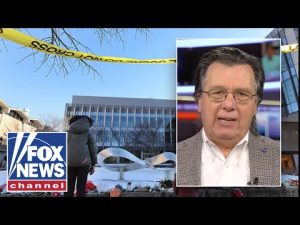In the grand theater of American politics, where policies and party lines often shape the narrative, there lies an ongoing spectacle in California that has captured the attention of many. California’s wildfires have become a pressing disaster, linking devastating consequences to the often polarizing policies enacted by the Democratic Party. As the smoke rises from the smoldering remnants of once-thriving communities, one compelling question looms: could the government’s handling of land and water issues have stoked these flames higher?
With a staggering 24 lives lost to the fires and many more at risk, the state’s response has been anything but satisfactory. Amidst the chaos and destruction, California has taken the bold step of allocating a whopping 50 million taxpayer dollars—yet not for the victims of the wildfires, but for illegal immigrants. It’s as if the state’s leaders have forgotten their primary responsibility is to serve the citizens who are suffering. Meanwhile, brave firefighters are on the frontlines battling blazes, while legislators seem more focused on managing the political fallout than addressing the urgent needs of those impacted.
One might recall a notable incident regarding the water supply; a network of reservoirs, allegedly emptier than a politician’s promises, came under scrutiny. Residents of the disaster-stricken areas were left wondering why some fire hydrants were dry when they were needed most. It was revealed that a key reservoir was indeed out of operation—adding insult to injury. As these revelations emerged, many began to connect the dots, pointing to systemic failures rather than mere coincidences. The information landscape has become a battleground, with new media on social platforms revealing discrepancies that traditional outlets gloss over.
Furthermore, the chaotic situation was further complicated by debates around how funds are allocated. Discussions about diversity initiatives in fire departments have surfaced, raising eyebrows among firefighters and civilians alike. A newly resurfaced video featured a diversity chief making excuses instead of prioritizing public safety and effective emergency response. It led many to wonder whether hiring officials based on woke agendas rather than on experience is a wise choice when lives hang in the balance.
As Governor Gavin Newsom faces increasing scrutiny for his management of the crisis, his remarks about assessing blame have drawn derision. Many see this as an attempt to deflect from the fact that his administration has contributed significantly to the current turmoil. The trust deficit between Californians and their leaders grows wider as disaster strikes. Newsom’s continued tenure only leaves the question of when constituents will step back and question the wisdom of continuing down the same political road that has led to so many failures.
This unfortunate chapter in California’s story is a stark reminder of the consequences that can arise when governance shifts its focus from serving the public good to promoting partisan agendas. As sorrow grips communities and firefighters wage an uphill battle against the flames, the call for change becomes louder. The clear lesson here is that real leadership must prioritize safety, accountability, and the well-being of residents over ideological pursuits. The stakes couldn’t be higher as a simple truth emerges: when fiery disasters strike, the people need responsible governance that puts them first—rather than the entrenched interests often favored by those currently in power.







